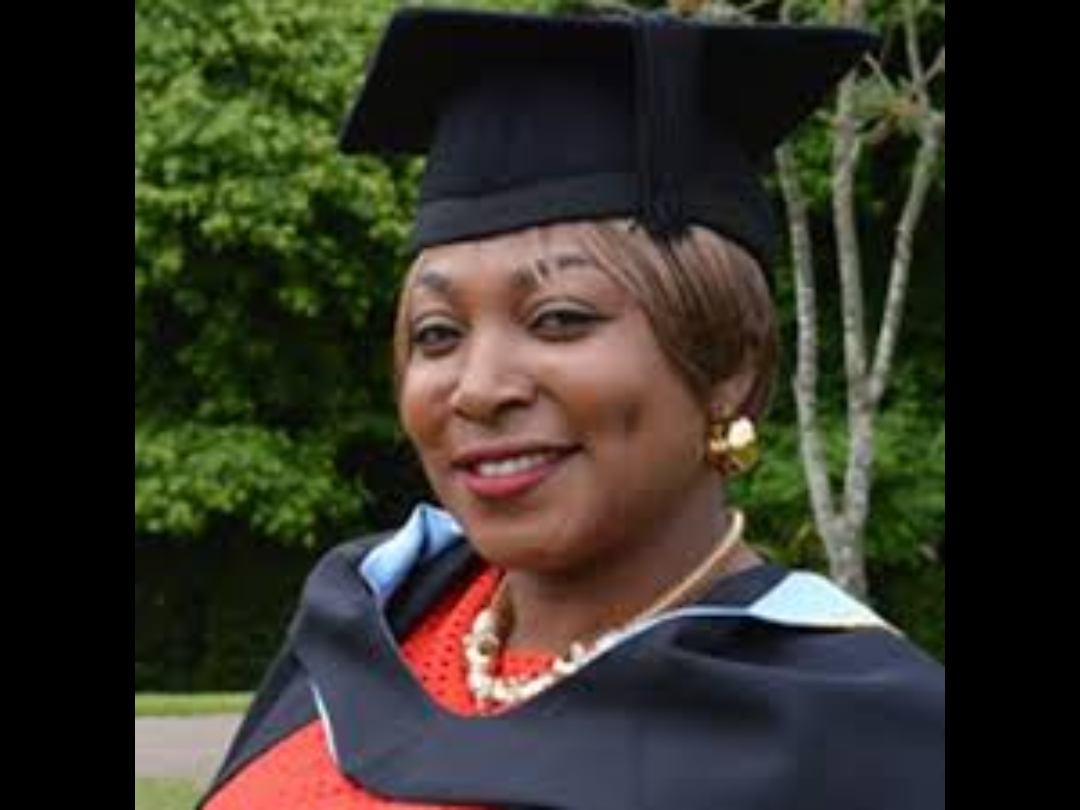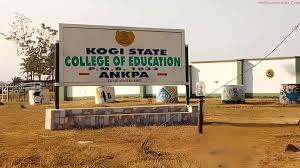Education
No Child Should be Excluded from Learning, Says Tinubu

By Eddy Ochigbo, Abuja
President Bola Tinubu on Monday, launched a campaign to promote inclusive education, skill development, and gender equity, declaring that, “no child should be excluded from learning.”
The President spoke at the launch of the campaign at the State House Abuja, saluting the commitment of African First Ladies, as members of OAFLAD, to advance gender equality and narrow the gender gap across the continent.
The campaign tagged, #WeAreEqual, is an initiative of the Organization of African First Ladies for Development (OAFLAD).
The campaign has been launched in 15 African countries in different iterations, focusing on health, education, economic empowerment, and gender-based violence.
The Nigerian component of the programme is tagged, ‘Education as a Powerful Tool for Change’, championed by the First Lady, Senator Oluremi Tinubu, CON.
Tinubu said, “This campaign holds significant importance for us in Africa. I, therefore, congratulate you all, particularly my dear wife, Senator Oluremi Tinubu, the First Lady of Nigeria, who has chosen education as a primary tool to champion this campaign nationwide.
“The focus of the launch of this campaign in Nigeria, ‘Education as a Powerful Tool for Change’ is critical for Africa’s development, if we are to attain gender equity and ensure equal opportunities for all.
“We must continue to create opportunities for all our children to access quality education without leaving anyone behind, particularly the girl child. We must engender a society where everyone has the same opportunities, regardless of who they are, because doing that leads to a stronger and more peaceful society for all,” the President said.
Tinubu noted that the launch of the campaign in Nigeria coincided with the re-introduction of the Alternative High School for Girls advanced by the First Lady, adding that this initiative offers a second chance to young girls, who have dropped out of school, to continue their education and fulfill their dreams and aspirations.
“I am happy to note that the foundation stone of one of the schools was recently laid in Osun State, in western Nigeria, by the First Lady. More schools are underway across the country, supported by state governments, the federal government through the Universal Basic Education Commission (UBEC), and other development partners.
“As governor of Lagos State, before I became President of Nigeria from May 29, 2023, I witnessed first hand how societal challenges, such as unwanted teenage pregnancy, domestic violence, human trafficking and drug addiction can obstruct the promising future of young girls.
“Indeed, the re-introduction of Alternative High School for Girls by the First Lady of Nigeria must have received inspiration from the successful implementation of a similar initiative in Lagos State during my tenure as governor,” the President said.
President Tinubu emphasized that education is the cornerstone of national development and that when girls are empowered to pursue their dreams, communities thrive, economies prosper, and nations succeed.
He said it is, therefore, incumbent on all stakeholders to continue to take bold and decisive actions to eliminate the structural inequalities that hold women back on the continent.
“We must be conscious of the fact that the empowerment of women and girls is essential to achieving each of the United Nations’ Sustainable Development Goals. We must work together to promote laws and policies that protect and promote women’s rights, invest in girls’ education and skills development, and create economic opportunities that are accessible to all.
“For us in Nigeria, the full operationalization of the Student’s Loan (Access to Higher Education) Act is key to achieving these goals as it will ensure that all young people have unhindered access to education.
“The Nigerian government, through the Federal Ministry of Industry, Trade and Investment, is also implementing a N50,000 non-repayable grant programme for one million Nigerians in Nano businesses and skilled trades, including women and youth,” President Tinubu said.
The President also said his administration will continue to work to end gender-based violence and increase learning opportunities for girls, in safe and conducive environments, adding: “These measures will enable more women succeed in different vocations and properly shape their future endeavours, from politics to engineering, science, technology, sports, and the creative economy.”
Tinubu reaffirmed his commitment to ensuring that no Nigerian child is excluded from quality education that prepares women and girls to lead and bring positive change to communities.
“Let us carry forward this campaign, which promises to give an educated girl-child the potential to bring the necessary change and transform African communities for the better.
“It is now my honour to launch the (#) We Are Equal Campaign in Nigeria. I wish you all a fruitful deliberation. I enjoin you to enjoy your stay in our beautiful country,” the President concluded.
Education
Educationist Advocates Strong Monitoring Structure for IDP Education

A lecturer at the University of Southampton, UK, Dr Vivienne Rwang has called for the establishment of monitoring structures to strengthen the implementation of Nigeria’s Universal Basic Education (UBE) policy for displaced populations.
Rwang made the call on Tuesday during a virtual seminar themed, “Improving Educational Access and Quality for Displaced and Marginalised Learners in Nigeria: A Policy and Practice Approach”.
It was hosted by the Southampton Education School, University of Southampton, UK.
She said findings from her academic study revealed the severe challenges faced by internally displaced children in accessing quality basic education in camps across North Central and North East Nigeria.
“Education is more than a right; it is a tool for stability, healing, and hope. We owe these children that much,” Rwang stated.
Citing global statistics, she noted that Sub-Saharan Africa accounts for 46 per cent of conflict-induced displacement worldwide, with Nigeria representing a significant portion due to prolonged insurgency and communal violence.
Rwang called for urgent reforms to Nigeria’s UBE framework, including the formal recognition of IDP camps by federal and state governments, dedicated education budgets for displaced children, and curriculum reforms in teacher training to integrate emergency education.
She further advocated for free education for IDP children, including the waiving of Parent-Teacher Association (PTA) fees, and the provision of uniforms and learning materials.
“In spite of Nigeria’s UBE policy mandating free and compulsory basic education, many IDP children remain excluded,” she said.
According to her, many IDP camps lack functional schools, while displaced children who attempt to enrol in neighbouring schools often face rejection, high fees, or non-absorption due to overcrowding or lack of documentation.
She also highlighted the shortage of trained teachers capable of addressing the psychosocial and educational needs of traumatised children, noting that most IDP schools operate without special budgetary allocations.
“Teachers working in and around camps often lack the training, motivation, and resources to meet the needs of displaced learners.
“Without education in emergency training, we risk losing an entire generation, ”Rwang added.
In her keynote address, Prof. Nana Tanko, Co-founder of the African Policy Research Institute, called for urgent action to support the education of children in conflict-affected states.
She stressed that collective efforts are needed to lift them out of their current circumstances.
Deputy Vice Chancellor, University of Jos, Prof. Rahila Gowon alongside other academics from the institution, also emphasised the need for a complete overhaul of Nigeria’s education system to better accommodate marginalised learners.
Also speaking, Simon Katu, Assistant Director of Disaster Risk Reduction at the National Emergency Management Agency (NEMA), advocated for the integration of education in emergencies into national and state disaster management frameworks.
He said this would help institutionalise the Safe School Initiative and ensure more consistent interventions.
Rwang’s research is titled “Quality Basic Education and Provision for Internally Displaced Children in Internally Displaced Persons Camps: A Case Study of IDP Camps in North Central and Northeast Nigeria”.
It was motivated by her volunteer work in IDP camps and findings from her master’s dissertation on public primary education in the Federal Capital Territory (FCT).
Representatives from the Universal Basic Education Commission (UBEC), International Organisation for Migration (IOM), Hope for All Foundation, Lovatt Foundation, and various school administrators also participated in the seminar.
Education
Philanthropist Olusoji Approves Full Scholarship for 100 Kogi COE Students

The act of generosity displayed by Asiwaju Prince Olatunji Olusoji, the Bashorun Akinjagunla of Ogidi, has not only put smiles on the faces of 100 students at Kogi State College of Education (Technical), Mopa, but has also earned him recognition as a key partner and friend of the institution.
He offered full sponsorship to 100 students of the institution, covering tuition and accommodation for the three-year academic programme.
The gesture was met with gratitude and appreciation from the Provost of the College, Dr. M.K Ibrahim, and the State’s Commissioner for Education, Hon. Wemi Jones.The College Provost particularly appealed for further partnerships, including an educational endowment and support for the construction of a College Clinic, which Prince Olusoji graciously agreed to consider.
For his part, Commissioner Jones commended the philanthropist for his dedication to educational advancement and community development, emphasising the government’s commitment to the growth of Kogi State College of Education (Technical), Mopa.
Prince Olusoji’s immediate approval and release of funds for the scholarship, as well as his pledge to assist with the clinic project, demonstrated his strong belief in the power of education and the importance of giving back to the society.
As a token of appreciation, the Provost and the Education Commissioner decorated Prince Olusoji as a ‘Friend and Partner of the College’, solidifying his status as a valuable ally in the pursuit of academic excellence and holistic development.The generous gesture of Asiwaju Prince Olatunji Olusoji serves as a shining example of how individuals can make a significant impact on the lives of others through acts of kindness and philanthropy. His commitment to supporting education and community welfare is a beacon of hope for the future generations of Kogi State and beyond.
Education
NYSC DG Tasks Corps Members on Patriotism, Selfless Service Others

The Director General of National Youth Service Corps (NYSC), Brigadier General Olakunle Nafiu has advised Corps members to allow the core values of the scheme be their guiding principles during and after their service year.
He said patriotism, integrity, efficiency, transparency, consistency, loyalty, discipline, diligence, selfless service among others are necessary requirements for a successful service year.
General Nafiu disclosed this while addressing the 2025 Batch ‘A’ Stream Two Corps members at the Cross River State Orientation Camp in Obubra and Ebonyi State Orientation Camp at MacGregor College,
Afikpo, a statement by the acting Director Information and Public Relations, NYSC, Caroline Embu, said on Sunday.
He said every Corps member must adhere strictly to the scheme’s bye-laws, constitution of the country and also respect constituted authorities.
“Be at your best at all times. Be diligent and punctual at work, don’t be lazy and serve as our good ambassadors,” the DG said.
The NYSC Cross River State Coordinator, Joke Oyenuga in her camp situation report informed General Nafiu that 1,455 Corps Members consisting of 675 males and 780 females took the Oath of Allegiance, which was administered by the High Court Judge of Obubra, Hon. Justice EA Ubua during the swearing-in ceremony.
She added that “the morale among the staff and Corps Members is very high and they were all committed to getting the best results.”
Similarly, the NYSC Ebonyi State Coordinator, Foluke Oladehinde said 1,525 Corps members comprising 765 males and 760 females were registered while the Oath of Allegiance was administered by Hon. Justice Nicholas Nwode on behalf of the Chief Judge of the State.




















